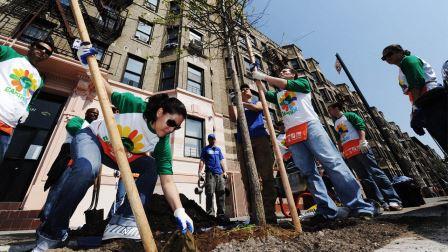Why Volunteering Is The Single Most Overlooked Skill On Resumes
If you knew that as many as 86% of influencers believe that doing a certain thing would make you more competitive among a pool of job seekers, wouldn’t you make sure to put that activity front and center on your resume?
That activity is volunteering, but according to the 2016 Deloitte Impact Survey there is a huge disconnect between how important it is to hiring influencers and how much candidates are leveraging their volunteerism to get jobs. Survey respondents found that only 30% of resumes list volunteering.
This shouldn’t come as too much of a surprise as candidates and hiring managers don’t frequently see eye to eye. Put that alongside the disparity between the skills candidates think make them workforce-ready and what hiring managers believe they lack. Applicants often highlight the very things that managers don’t place a lot of stock in, either.
The online survey was given to 2,506 respondents in 13 major metropolitan areas: Atlanta, Boston, Charlotte, Chicago, Dallas/Ft. Worth, Detroit, Houston, Los Angeles, New York Metro (NY/CT/NJ), Philadelphia, Bay Area(San Francisco/San Jose), Seattle, and Washington, D.C. Participants were currently employed and were responsible for either hiring or indirectly influencing a person making the hiring decision.
The respondents were overwhelmingly in favor of volunteering as a professional development tool. Among the findings:
- 92% believe volunteering expands an employee’s professional skill set
- 85% are willing to overlook resume pitfalls when an employee includes volunteering on a resume.
- 82% are more likely to choose a candidate with volunteering experience
- 80% believe volunteering is an effective way to boost leadership skills
- 73% believe people who volunteer are more successful
So why aren’t more people adding it to their resumes?
Doug Marshall, director of Corporate Citizenship for Deloitte Services LP says volunteers may be underestimating how businesses value volunteering experience. “It appears that respondents see it as something separate from the professional realm,” he says.
Additionally, says Marshall, the survey revealed that respondents were leaving volunteering off their resumes because they thought employers wouldn’t care, they hadn’t volunteered recently, they thought it might distract from their professional skills, or it wouldn’t fit on their resumes.
Hannah Barfield, a recruiter with Godshall Professional Recruiting, explains,”Somewhere along the evolution of job-hunting and in the depths of resume advice on the Internet, people learned that volunteer work falls into the same category as date of birth and marital status.” Including it would be like divulging personal details which isn’t appropriate on a resume. “This is a terrible myth,” Barfield maintains.
She points out that companies don’t just hire the candidate that checks off every bullet point on the job description. “They hire the best culture fit, personality, and advocate for their company,” Barfield observes. That’s why it’s important to include volunteering alongside record-breaking metrics and career achievements in the experience section, she maintains.
Barfield says, “Volunteer work conveys three things: You’re well-rounded and compassionate, you have even more skills than the ones you use in your daily job, and you’re going to build the company’s reputation in your community.” For positions in leadership, sales, or marketing, Barfield adds, “Multiply that last point by 10.”
Marshall says that while it’s true that a few days of volunteering can never make up for years of work in a specific job, he thinks companies themselves can help by developing their own programs.
As the war for talent continues unabated, Barfield observes that community service has become a top priority for millennial job seekers and she anticipates an even larger shift towards this over the next decade. “Companies are adopting cultural awareness and giving back as cornerstones of their employer brand,” she says.
Marshall points to Deloitte’s own annual Impact Day, which includes more than 950 projects for nonprofit organizations in more than 80 cities. “We see tangible leadership skill-building benefits and increased employee engagement as a result of this program,” he says. “Dedicated volunteers can gain an advantage over other job candidates and develop professionally while also helping their communities,” adds Marshall, “It’s a win-win-win.”
Fast Company , Read Full Story
(53)


